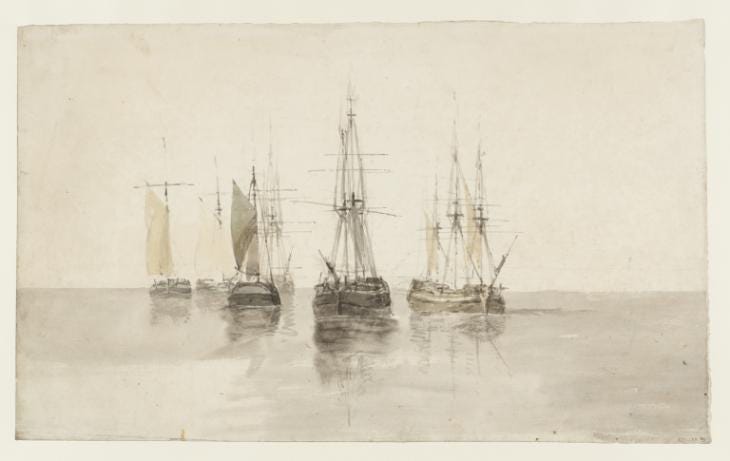The term ‘human flourishing’ encompasses various conditions, including social, cultural, and general well-being. However, none compare to the profound ontological transformation brought about by faith in Jesus Christ. For “the joy of the Lord” (Nehemiah 8:10) is miraculously and delightfully infectious. When God’s children radiate joy, the entire city feels it. The persecution of believers in Jerusalem led to the migration of Christians who proclaimed the Good News of the resurrected Savior to the cities to which they fled:
“Now those who were scattered went about preaching the word. Philip went down to the city of Samaria and proclaimed to them the Christ. And the crowds with one accord paid attention to what was being said by Philip when they heard him and saw the signs that he did. Unclean spirits, crying out with a loud voice, came out of many who had them, and many who were paralyzed or lame were healed. So there was much joy in that city” (Acts 8:4-8 ESV).
A Resilient Community
The believers of Jerusalem, having witnessed the crucifixion and ascension of Jesus Christ, endured the onslaught of violent opponents, such as Saul of Tarsus. Yet, adversity catalyzed evangelism. As the followers of Jesus Christ were scattered, they proclaimed the Gospel. Every transaction of commerce or civility became a mission field. The message of the resurrected Jesus touched and transformed an ever-increasing number of human souls. Before long, the message of the Gospel would permeate the private chambers of capital. Subjected rulers7 would take the Gospel back to their Imperial, and Senatorial provinces, as well as Client States. So the Gospel traveled from Bath to Babylon.
And how did this start? Compare verse one to verse eight. Do you see it? Suffering generated joy in the city. This kind of transformative joy stems from one’s deep-seated faith in God’s eternal delight in Christ, which brings forgiveness. Such enlightenment transforms people ridden with distress into beings comforted by security. This security nourishes the soul with contentment, which eventually manifests as joy to the external world. In essence, trusting in Christ releases spiritual endorphins, radiating joy throughout the entire community

My Experience of the Joy of the Lord
That which I received I share. Thus, my personal transformative encounter with the Lord Jesus Christ began early in my life. Orphaned, I was given to my father’s sister. I was a ward of the State in the guardianship of my aging Aunt Eva. She laid her hands on my head and prayed for me every day—every day, as if to draw out the pain of a child from a house of madness. Thus, my encounter with the Lord Jesus began in childhood. But my transformation began years ago when Dr. D. James Kennedy preached a message on grace and faith that awakens the dead soul to life in Christ. The Word of God moving through that man’s message caused me to be born again. The grace of God in Christ unleashed a profound joy of being at peace with God. I immediately became an ambassador—green but growing—and passionately shared the wonders of God’s grace in the righteous life, atoning death, and confirming resurrection of the living Christ. I prayed with others who came to Christ, rich and poor, educated and not, black and white, those in a physical prison to be executed and those in a metaphorical prison of life without God. Joy was both the fuel and the byproduct of the Gospel. It is like a continuous combustion of grace and joy—not giddiness, but deep, quiet brooks of water, moving under bridges of pain, and across the sharp-edged river rocks of trouble. Through it all, the river of God’s presence runs deep, beneath the surface, and transporting divine joy to the very root system of life.
Joy Amidst Suffering
For me, joy and evangelism are inseparable. This divine union is evident in the aftermath of Jesus’s ascension into heaven. Driven by a deep and dark malevolence, Saul terrorized the believers in Jerusalem. However, even in the face of such terror, the faithful—laymen and clergy alike—spread their message. The scripture narrated by Dr. Luke, inspired by the Holy Spirit, transitions, enigmatically, from a tale of terror to one of joy.
For Christians worldwide, the path of discipleship isn’t without perils. Many face unimaginable suffering simply for their belief in the Lord Jesus. Yet, the Church of Jesus Christ remains unconquerable. She marches triumphantly, drawing strength from the cross of Christ, exuding a Spirit-wrought confidence in the divine promise that all things—even the most horrific—work together for good to those that love God and are called according to His purposes (Romans 8:28). I have seen this indomitable spirit in the lives of His people.
Witnessing Divine Resilience
I have witnessed the stalwart spirit of faith in the lives of modern martyrs and suffering saints. In the north of India, I came upon a wonder: pastors gathered with me to tell me of the incredible persecution of their people, and the simultaneous unfettered joy. Very often, revival accompanies tribulation. In Uganda, pagan tribal leaders placed a bounty to kill one of their own: a man converted to Christ who preached from village to village. Animism and religions of oppression, stoking war-like hatred in generations of people, fell on their faces before the unseen, resurrected Christ. This preacher, an Anglican minister, told me how soldiers of Idi Amin ran confused and fearful from the place where they were to kill him. “Why were they fearful,” I asked. He smiled. “All that I did was pray for them. The joy of the Lord was my strength. Joy was overflowing my life at that moment. I guess they thought I was crazy. But I later learned that they feared the living God in our midst.” I was in Albania, during the collapse of the oppressive Communist regime. In my hotel, I encountered a priest from Shkodër, one of the cities in the beautiful northern Alps of Albania. This priest had been caught administering the Lord’s Supper. He was sent to a labor camp for five years. Each day he was beaten for his faith in Christ. He refused to deny the Savior, who was Lord of his life. As his story continued, he animated it by lifting his black clerical shirt for me to see his back. He motioned for me to inspect the evidence of torture for Christ. He paused his story as I witnessed the scars and scar tissue that looked like mountain ranges of flesh going north, south, east, and west. Furthermore, he described the torture: countless lashings for days on end. He told his story with humility, as if he received a privilege that I had not. Enigmatically, the toothless priest, was more dignified in his poverty than any Christian shepherd I have ever known. I mentioned his missing teeth because I saw him smile, a joyous smile I can never forget. The priest sensed the inability to speak, and precluding any possible expression of pity, spoke in Albanian, “No, no, my friend. No sorrow. Only joy. All for Jesus.”
God has the power to transform human transgressions and tribulations alike into stories of grace, forgiveness, and hope. This is not only so for people caught in the existential threat of totalitarianism. It is so for those battling cancer. It is so for those seeking God’s help for their prodigal child. The ruling motif of the cross is at work in your life and mine. We are not fatalistic figures in a Kafka novel. Providence does not limit us. It liberates us. God’s sovereignty does not constrict us. His sovereign grace constrains us to live lives of doxological joy, no matter the circumstance. For we who are called by the grace of God through repentance and faith in the resurrected Christ are the sons and daughters of the living God. We are subject to the fallen world, but not captive to it. We carry pain in our souls as one carries berries from the field to be brought as a gift to our Father. Likewise, we lay our burdens at the foot of the cross, signs of sovereign activity in our lives remade in Christ to become offerings of gratitude. Thus, St. Paul:”
As it is written, “For your sake we are being killed all the day long; we are regarded as sheep to be slaughtered.” No, in all these things we are more than conquerors through him who loved us. For I am sure that neither death nor life, nor angels nor rulers, nor things present nor things to come, nor powers, nor height nor depth, nor anything else in all creation, will be able to separate us from the love of God in Christ Jesus our Lord (Romans 8:36-39).
Through the transformative power of the Gospel at work in our lives, the very things that seek to destroy us become the things in the hands of a sovereign God that save us. This is the ruling motif of the cross, and thus the divine pattern governing our lives.
Finding Purpose in Tragedy
In times of sorrow, we must remember God’s omnipresence. His divine plan, though often beyond human comprehension, always unfolds for the greater good. It’s during these challenging moments that the Gospel of Jesus should be preached most fervently. The promises of God are lights best seen in the dark skies of adversity.
My prayer for this generation and those to come is this:
“Lord, I pray for the protection of believers from persecution. But Lord, should the evil of the devil and the consensus of the world converge in tribulation for Thy people, bring courage from such treatment, strength from such suffering, and paradoxical power that only Thou canst provide. Cause what might destroy us to become what delights us, to the glory of Thy name and the good of Thy people. Through Christ, our Lord, I pray.”
There is an ominous and foreboding wind blowing across the landscape of our time. We see dark clouds, once moving, now stalling over the land. The shadow of the dark, low cloud-cover affects all of us, believer or not. Yet, for the one who will receive Jesus Christ as Lord and Savior, the winds of troubles are used by God to fill the sails of our lives. And the tempestuous gusts that would harm us become the gracious gales of the Lord of the Storm that guide us to fair haven and safe harbor.
This is the power of the Gospel in our midst. And it is a joy






